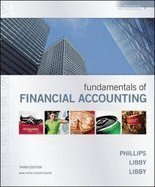Question
Calculations and layout must be your own, and descriptive answers must be in your own words. If you need to use specific information from a
Calculations and layout must be your own, and descriptive answers must be in your own words. If you need to use specific information from a banks website, for example, be sure to reference it to the specific site. Clearly state any assumptions that you make and ensure that the assumptions are reasonable. DO NOT answer all in a same worksheet answer in 4 separate worksheets. Have another worksheet as a cover page to state your groups information. For (a) to (c), each calculation step carries 1 mark. For (d), each answer to specific question carries 1 mark. Required: (a) Prepare an income statement for last year (2016) for the Gruber family. Assume that they had no taxes owing or refunded. (b) Prepare a balance sheet as of the end of last year (2016) for the Gruber family. (c) Prepare a monthly cash budget for the period of January to December of this year (2017). State clearly any assumptions you make. (d) Comment on the Gruber familys current situation with regard to their cash budget and make recommendations on what they should do with respect to their current spending and saving habits. Discuss all the issues that you feel are relevant to the Gruber family's financial situation, including plans they should be making to meet reasonably anticipated future expenditures and expenses. How realistic is their desire to buy a larger house? It's New Year's Day, 2017, and John and Julie Gruber have decided to be more careful with how they spend their money. Lately, they have realized that they are merely going from pay cheque to pay cheque. They want to look seriously at their financial situation and put themselves on a budget. At the rate we're saving, we'll be 90 years old before we can retire! says Julie. They have two children, Jenny, 6 years old, and Ross, 2 years old. They are planning to have another child in a year or so, and they would also like to buy a larger home. The Gruber family have come to you for advice and have provided you with the following information: i. John is a production manager in a small manufacturing firm. His annual salary is $79,000. His net bi-weekly pay after payroll deductions is $2,910. Julie has a part-time job as a legal secretary and makes about $300 a week after deductions. Her gross annual salary is $18,700. ii. The younger child stays in a home day care in the neighbourhood, at a cost of $105 per week. iii. They have a chequing account which is used to pay all their household bills and from which draw their pocket money. The balance in the account at the end of December is $400. Their savings account has a balance of $4,100, and pays interest of approximately 1% p.a., on the minimum monthly balance. iv. John gets a performance bonus and salary review on the anniversary of his employment. He thinks he will get a 5% increase this year (2017). v. Monthly mortgage payments on their $101,000 mortgage are $1,310. vi. Monthly life insurance premiums for John are $170. As of December 31, the policy had a cash surrender value of $2,200. vii. Monthly car loan payments are $510. Licence fees of $90 are due in February and September. viii. As one of the beneficiaries of her grandmother's estate, Julie expects to get about $40,000 by the end of June. ix. Their average utility bills are: o $250 for gas, bi-monthly beginning in January o $ 80 for telephone, monthly (includes long distance) o $100 for hydro, bi-monthly (February, April, etc.) x. John has a car valued at $16,100 with an $8,900 loan outstanding (originally taken out for a four-year term). Julie's car is three years old and fully paid for with an estimated value of $10,000. Gasoline and parking cost $250 a month for both of them together, and repairs cost $1,500 last year. xi. Insurance premiums are paid annually for the house and vehicles. House insurance will be $1,200 in October, car insurance total for both cars will be $1,500 in November. xii. They spend about $190 per week on food, drugs and toiletries. xiii. John figures he spends about $240 per month for lunches and coffee at work. xiv. They think they can go through $50 a week on miscellaneous expenditures. xv. Julie has a balance of $750 owing on her Visa card and John owes $250 on his charge card. xvi. There are other costs that must be covered clothes, gifts, miscellaneous household items, etc. John says: Thank goodness for credit cards. We have tried budgets before, but it is impossible to stick to them. I guess you could say that I am a little sceptical that a budget will work for us. xvii. John owns listed shares of a company worth $17,000 that paid $800 in dividends last year. The first dividend was paid in February. xviii. Julie has $9,500 in her RRSPs. xix. Household contents would cost about $60,000 to replace, according to the insurance agent. They feel that they could get about $410,000 for their house, before real estate commissions, legal fees and moving expenses. This year's property taxes will increase 2% over last year's taxes of $3,000 and they are due in equal installments in February, March, April, June, August, and September. xx. Assume that half of their mortgage payments and half of their loan payments are comprised of principal, and half of interest.
Step by Step Solution
There are 3 Steps involved in it
Step: 1

Get Instant Access to Expert-Tailored Solutions
See step-by-step solutions with expert insights and AI powered tools for academic success
Step: 2

Step: 3

Ace Your Homework with AI
Get the answers you need in no time with our AI-driven, step-by-step assistance
Get Started


